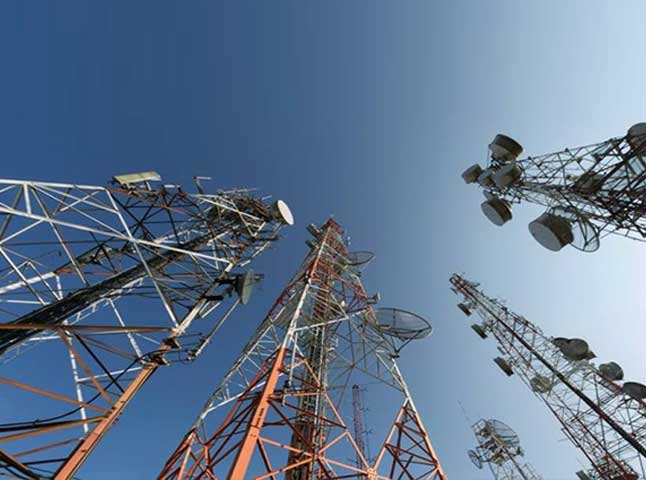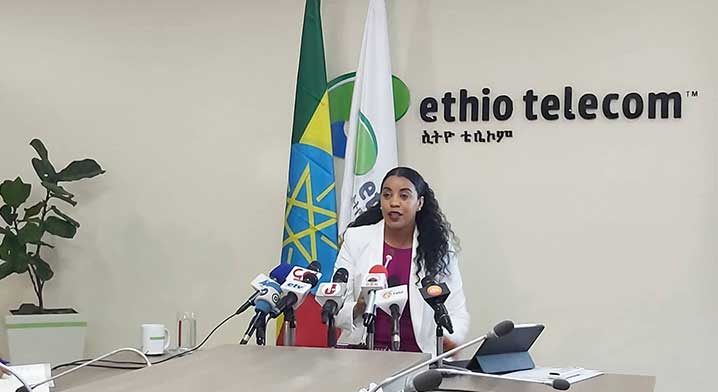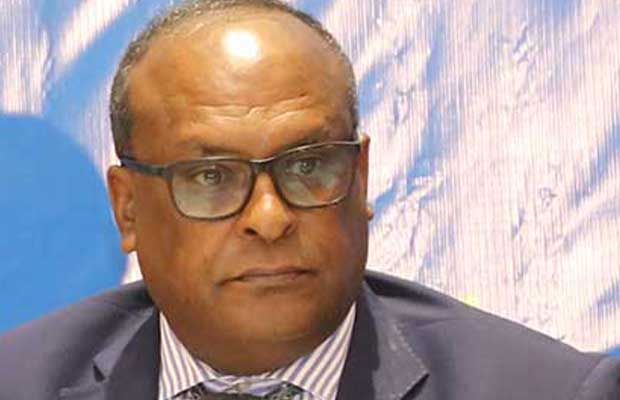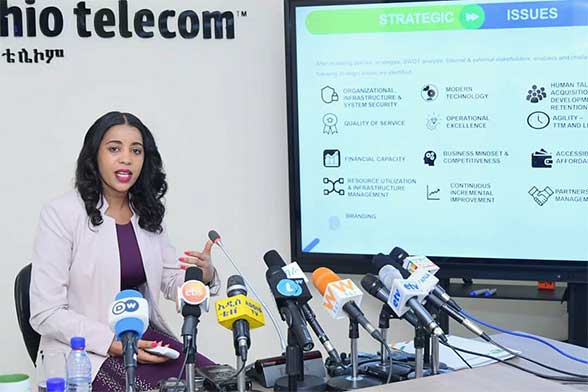
Fortune News | Oct 31,2020
Oct 19 , 2019
By SEBLE WONDEMAGEGN ( FORTUNE STAFF WRITER )
 Frehiwot Tamiru, CEO of ethio telecom
Frehiwot Tamiru, CEO of ethio telecom Ethio telecom, the state telecom monopoly, is scheduled to fully adopt International Financial Reporting Standards (IFRS) before the end of this year.
For the first adoption of IFRS, a set of accounting standards that provide a common global language for business activities, the company has hired KPMG East Africa for close to one million dollars. KPMG secured the project, which involves asset valuation for first time IFRS adoption, with contract delivery expected within 70 working days of the contract signing.
The management of the company and KPMG had a kickoff meeting beginning last month. Ethio telecom has also formed a steering committee led by the CEO to follow up on the process.
For years, Ethio telecom has been using Generally Accepted Accounting Principles (GAAP) to prepare its financial reporting, according to Frehiwot Tamiru, CEO of the company, which divides its operations into six zones and 17 regions across the country.
"For the adoption of the system, employees of the company already took training," she told Fortune.
Along with the adoption of the reporting system, KPMG will value the assets of the company, which is scheduled to be partially privatised before the end of this fiscal year.
Ethio telecom, which will be joined by two other private telecom operators soon, has reached 44.4 million subscribers during the first quarter of this fiscal year, an increase of 10.4pc from the same quarter in the previous year. Out of the total subscribers, 42.9 million of them are mobile voice subscribers, 21.6 million data and internet users and the rest are fixed service users.
“Many interventions have been taken to improve customer experience including deploying additional network resources and optimising the existing ones,” said Frehiwot.
As a result of introducing multiple value-added services in the local and international domains, the company was able to collect 10.1 billion Br in revenue, a 21pc increment from the same quarter last fiscal year, according to the announcement at the end of last week.
Recently, the Ministry of Finance, which is responsible for privatising public companies, requested expressions of interests to hire a company that will consult on transaction procedures for Ethio telecom.
The Ministry also formed a five-member committee to facilitate the bid evaluation to select an advisory firm as part of the privatisation process.
The committee is composed of experts from the Ministry of Finance, Ethio telecom and the Public Enterprises Holding & Administration Agency and will be chaired by Beyene Gebremesqel, director-general of the Agency.
The introduction of telecommunications in Ethiopia dates back to the late 19th century. Ethio telecom was first established as Telephone, Telegraph & Postal Services Agency in 1941. It was named the Imperial Board of Telecommunications in 1952 and the Ethiopian Telecommunication Corporation in 1996. The telecom currently has around 35,000 permanent and contract employees.
The state monopoly company is expanding its 3G [third generation] network to seven sites including Legehar, Jemmo and Haile-Garment in the capital and Adama in Oromia Regional State. It has upgraded its international gateway capacity by 30GB in the first quarter of this year. Telecom penetration has also reached 45pc in the reported period.
In only the first quarter of this fiscal year, the company has paid 1.4 billion Br in taxes and was able to service 141 million dollars in foreign debt to its creditors. Out of the serviced loans, 74 million dollars of it was paid during its maturity period.
Ethio telecom has contributed more than 74 million Br to social programmes such as children, youth, women, elders support and to assist education, health, agriculture and environmental protection projects.
Alemayehu Geda (Prof.), a university lecturer and macroeconomist, believes that the government should give some time to the company before privatising it.
"Before privatisation, the company should get some time to compete with the two operators in a bid to place itself in the market," Alemayehu said.
Even after that, a significant share of the company should not be privatised, according to Alemayehu, who says that 49pc is substantial for the company, which generates about 60pc of revenues for the government.
"Allowing private investors to buy a non-significant share of Ethio telecom will improve the service efficiency of the company," he adds.
PUBLISHED ON
Oct 19,2019 [ VOL
20 , NO
1016]

Fortune News | Oct 31,2020

Radar | Aug 21,2021

Fortune News | Jan 26,2019

Exclusive Interviews | Jan 05,2020

Fortune News | Aug 31,2019

Dec 22 , 2024 . By TIZITA SHEWAFERAW
Charged with transforming colossal state-owned enterprises into modern and competitiv...

Aug 18 , 2024 . By AKSAH ITALO
Although predictable Yonas Zerihun's job in the ride-hailing service is not immune to...

Jul 28 , 2024 . By TIZITA SHEWAFERAW
Unhabitual, perhaps too many, Samuel Gebreyohannes, 38, used to occasionally enjoy a couple of beers at breakfast. However, he recently swit...

Jul 13 , 2024 . By AKSAH ITALO
Investors who rely on tractors, trucks, and field vehicles for commuting, transporting commodities, and f...

Jun 28 , 2025
Meseret Damtie, the assertive auditor general, has never been shy about naming names...

Jun 21 , 2025
A well-worn adage says, “Budget is not destiny, but it is direction.” Examining t...

Jun 14 , 2025
Yet again, the Horn of Africa is bracing for trouble. A region already frayed by wars...

Jun 7 , 2025
Few promises shine brighter in Addis Abeba than the pledge of a roof for every family...